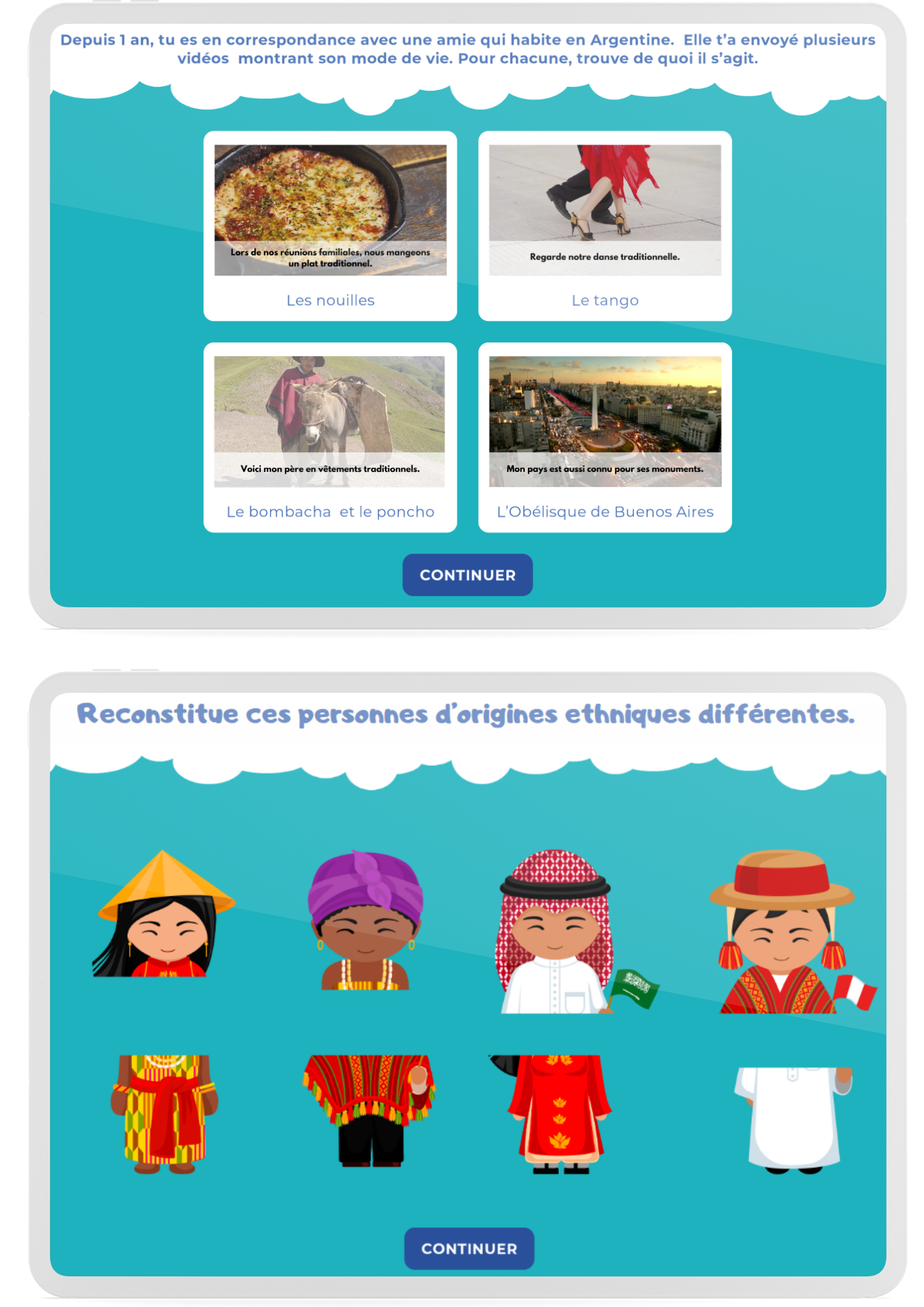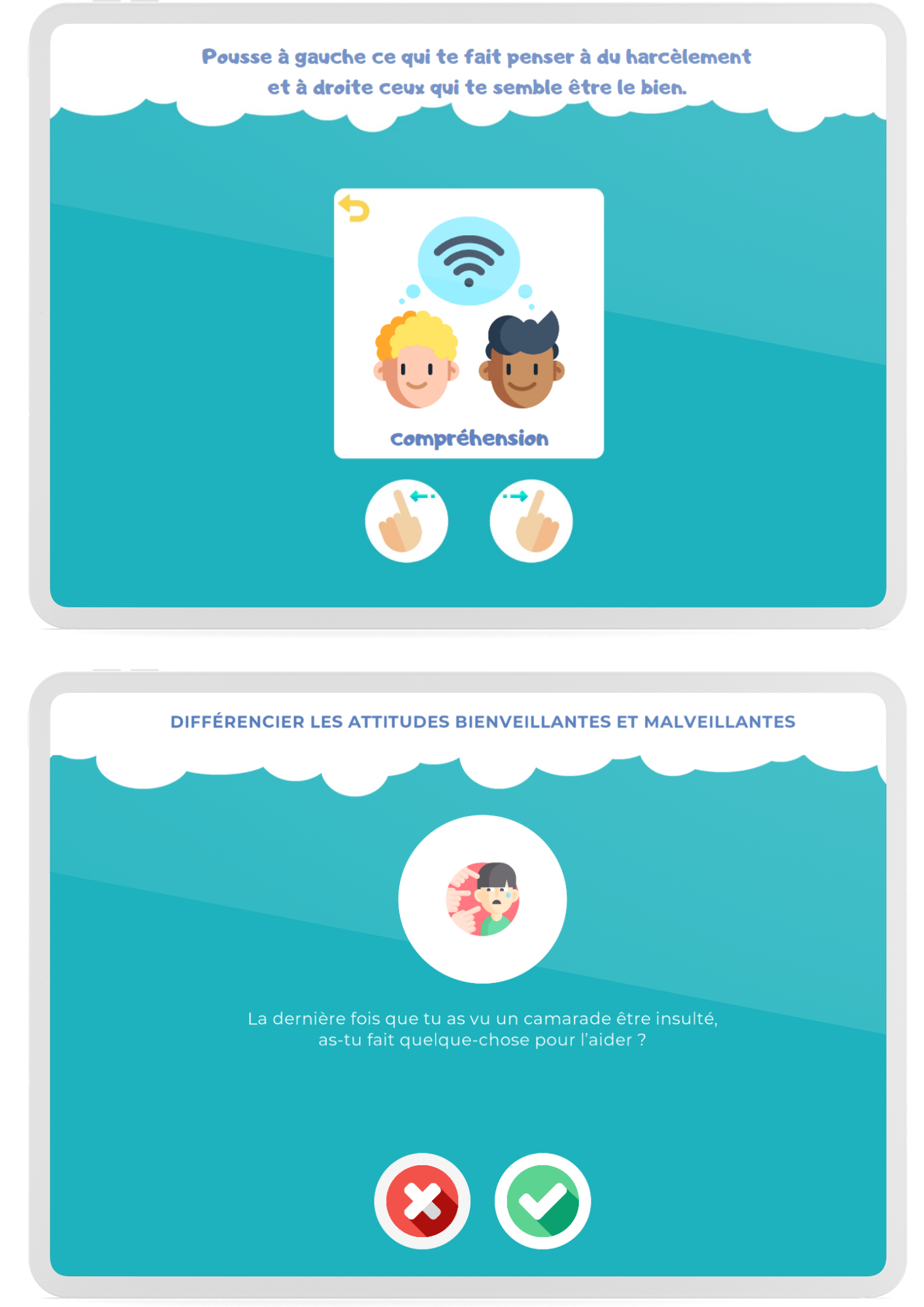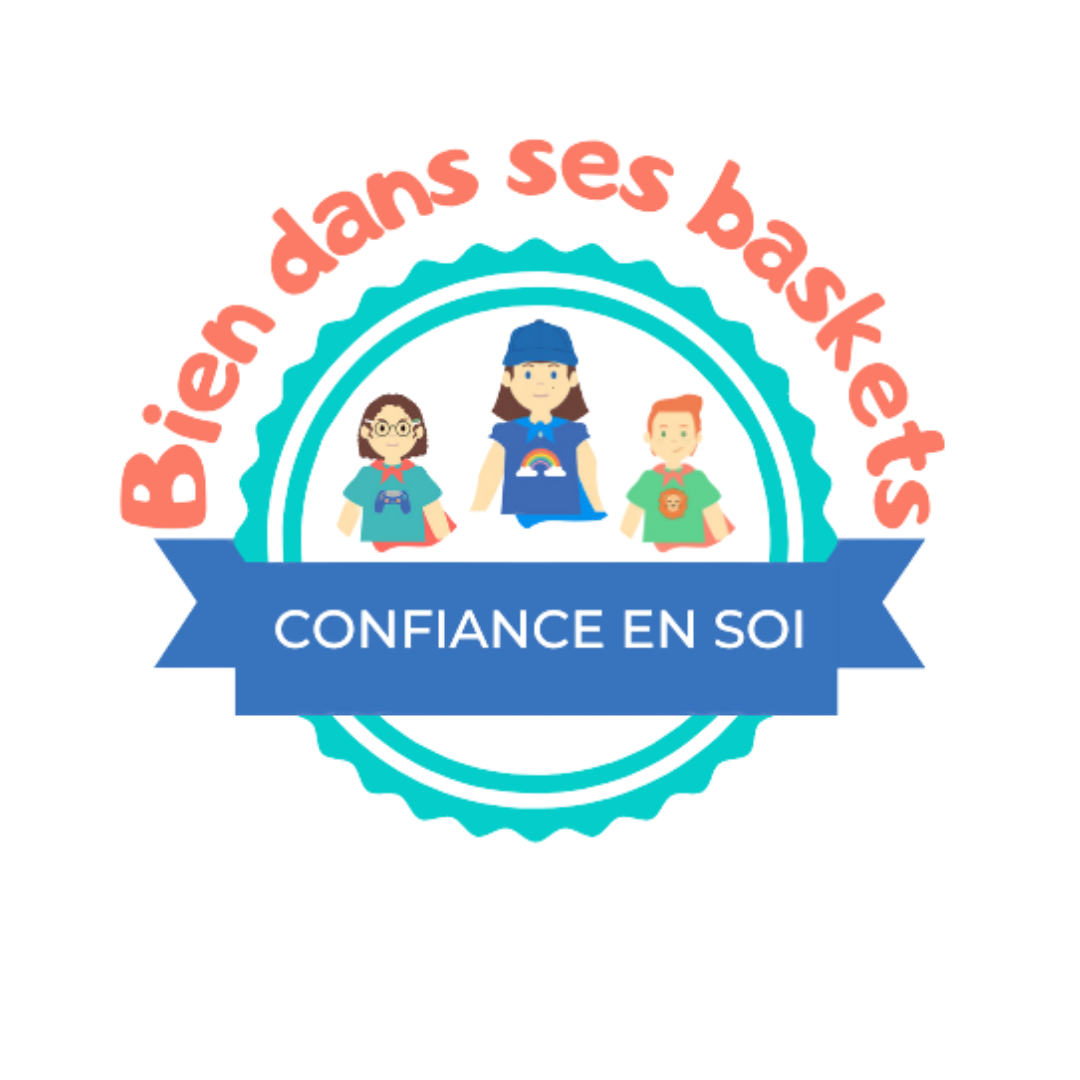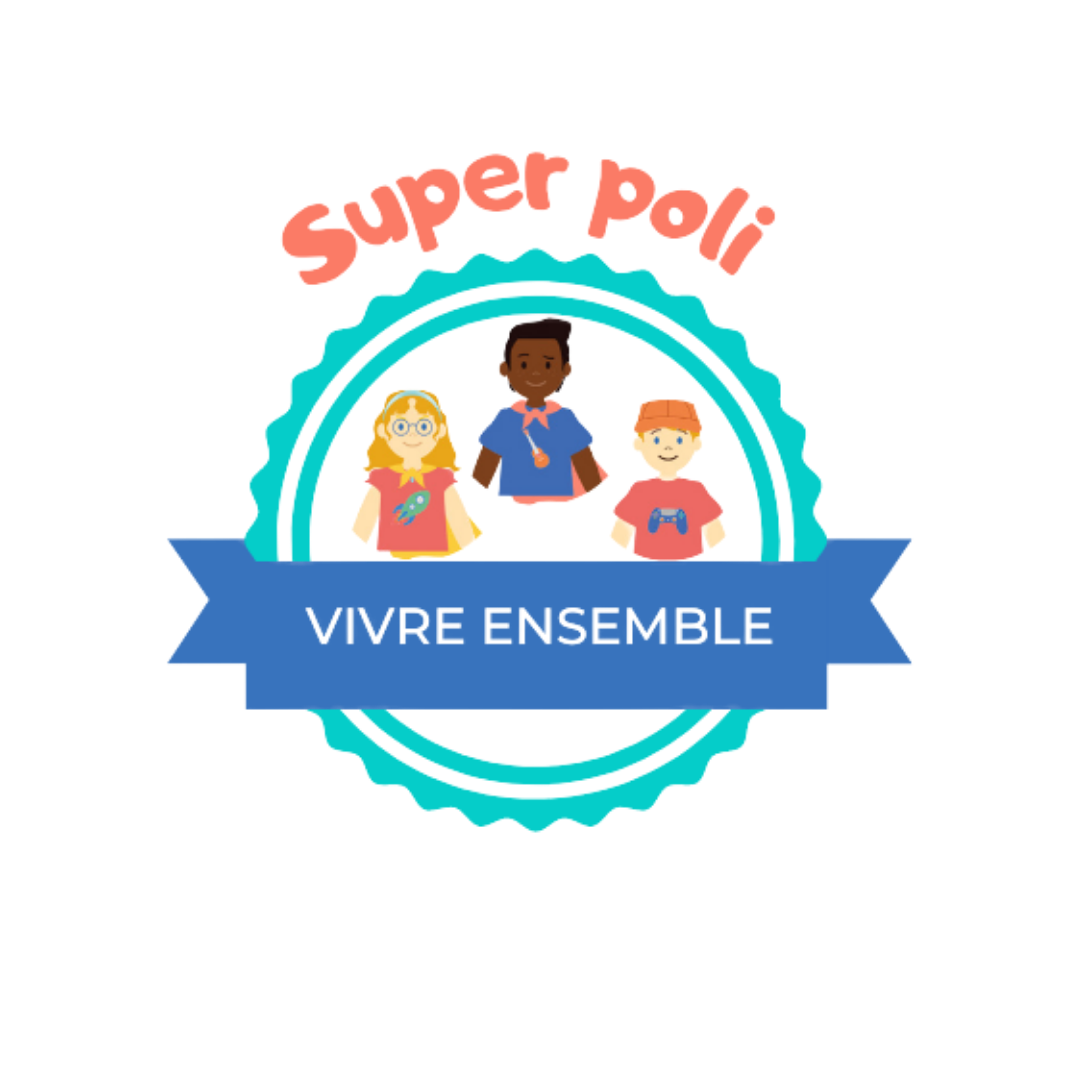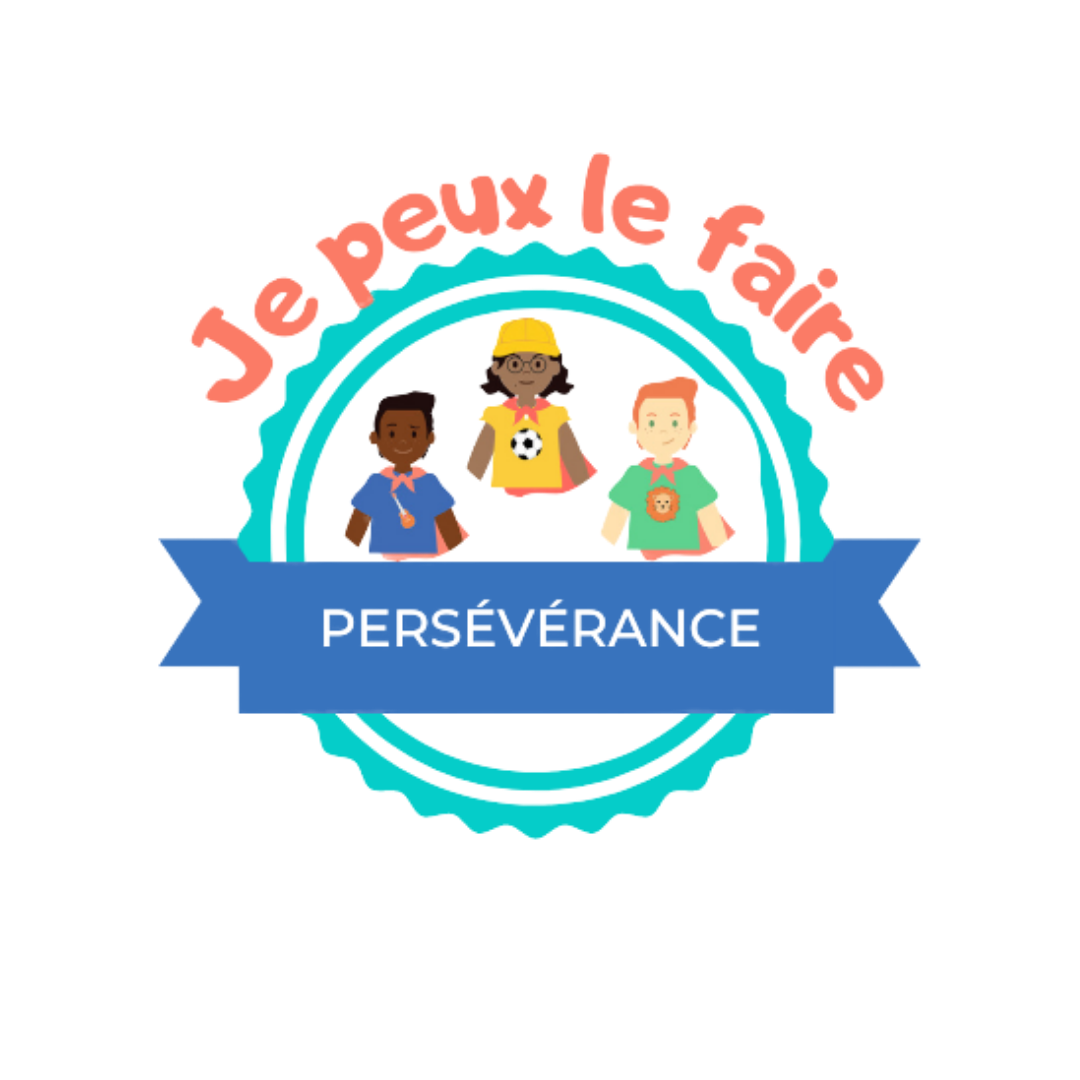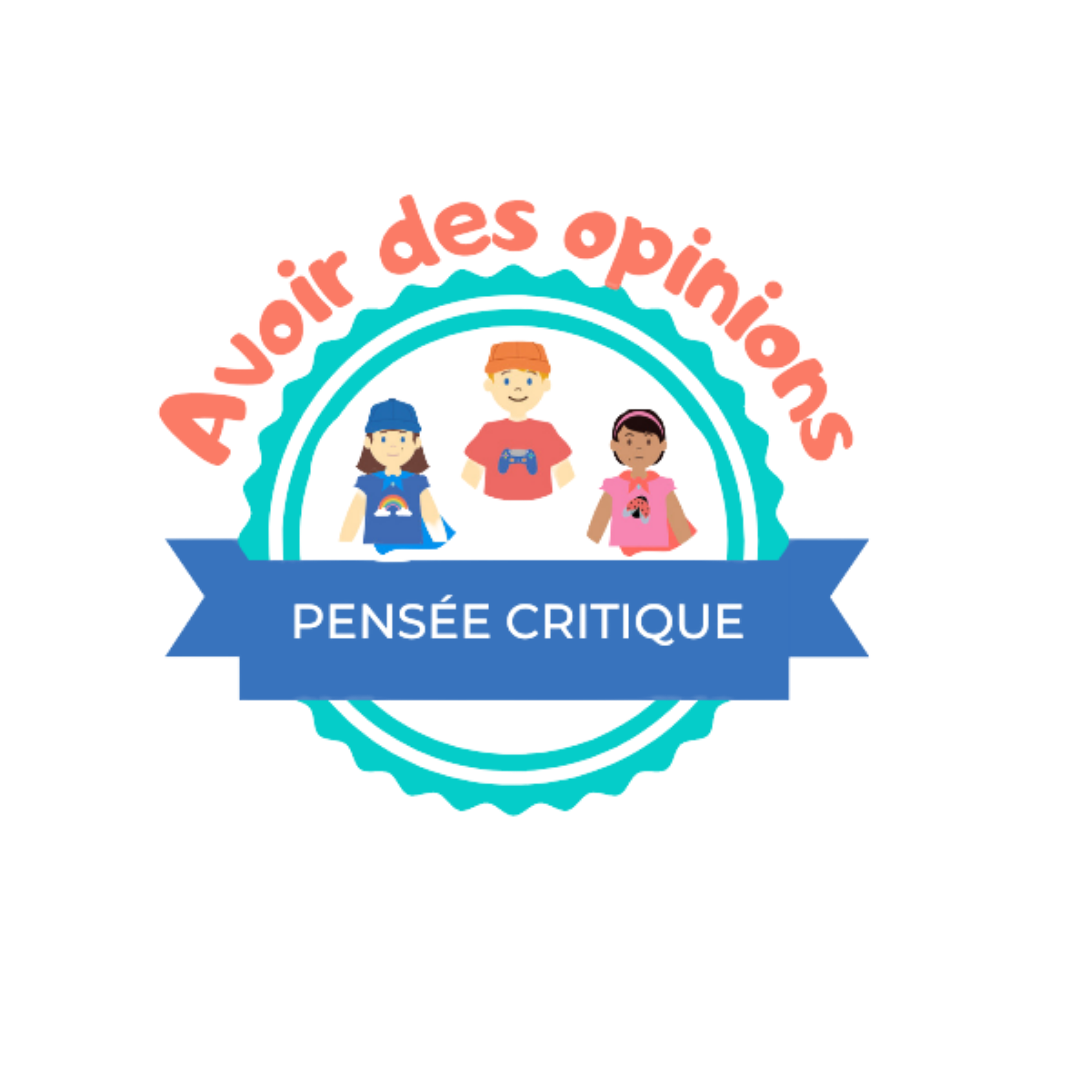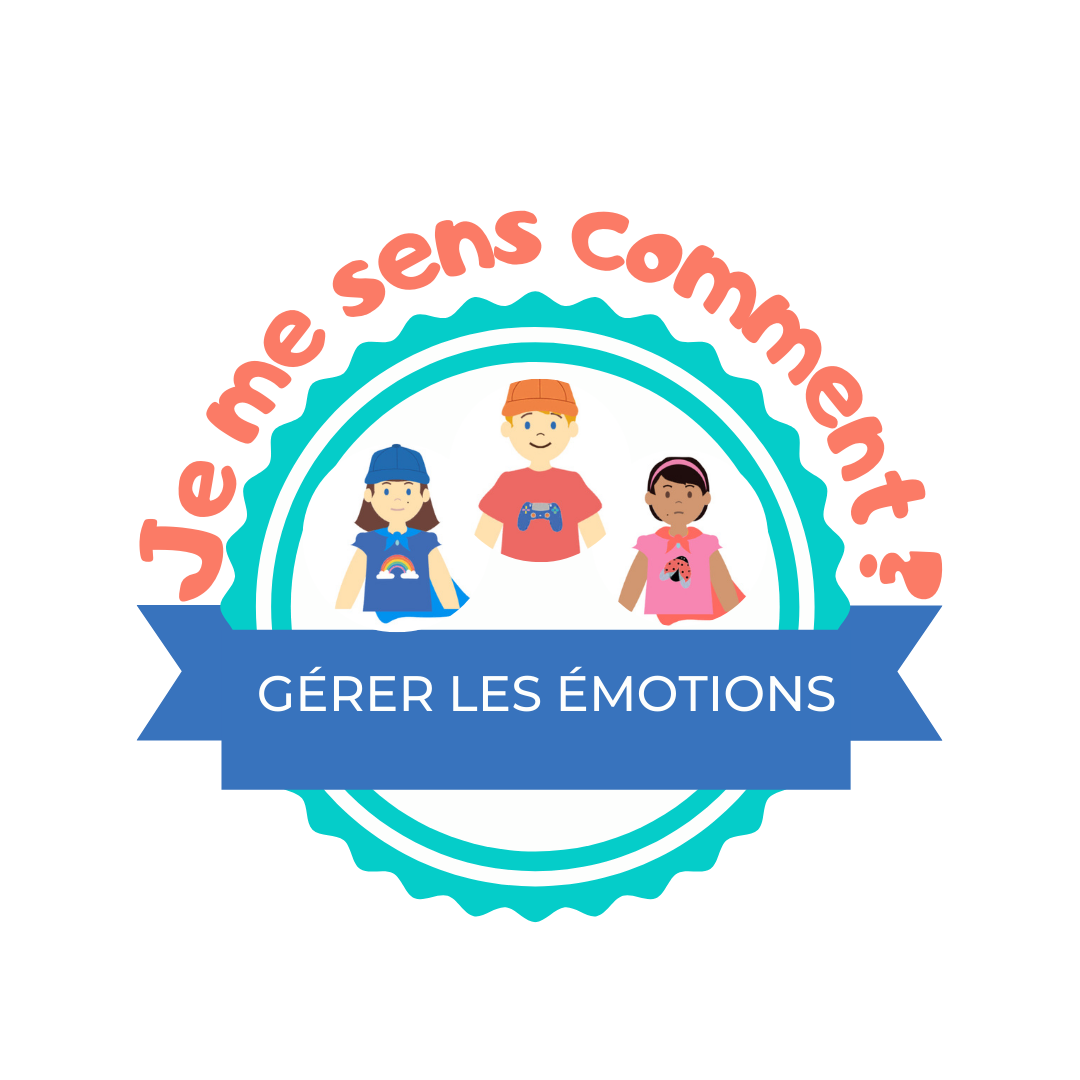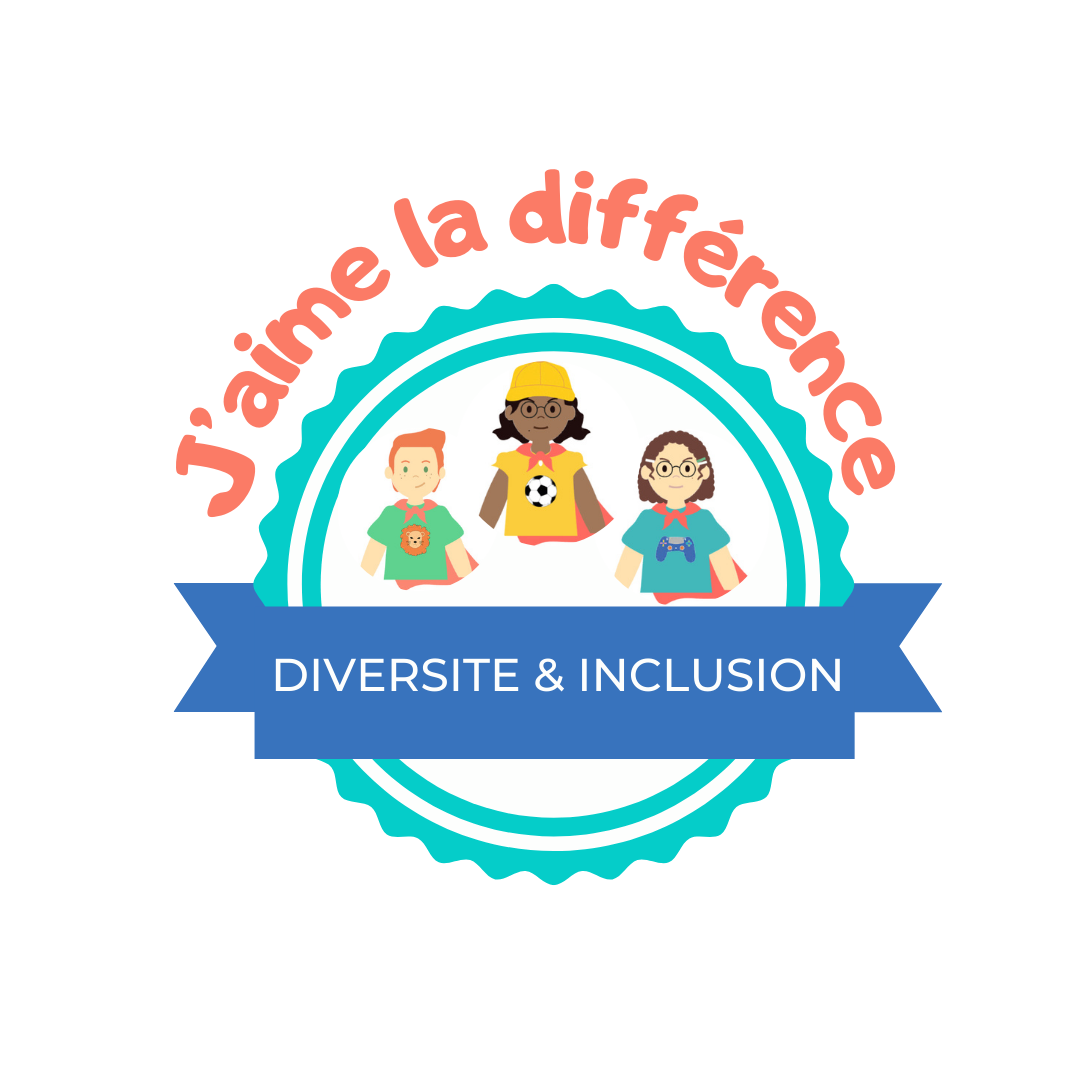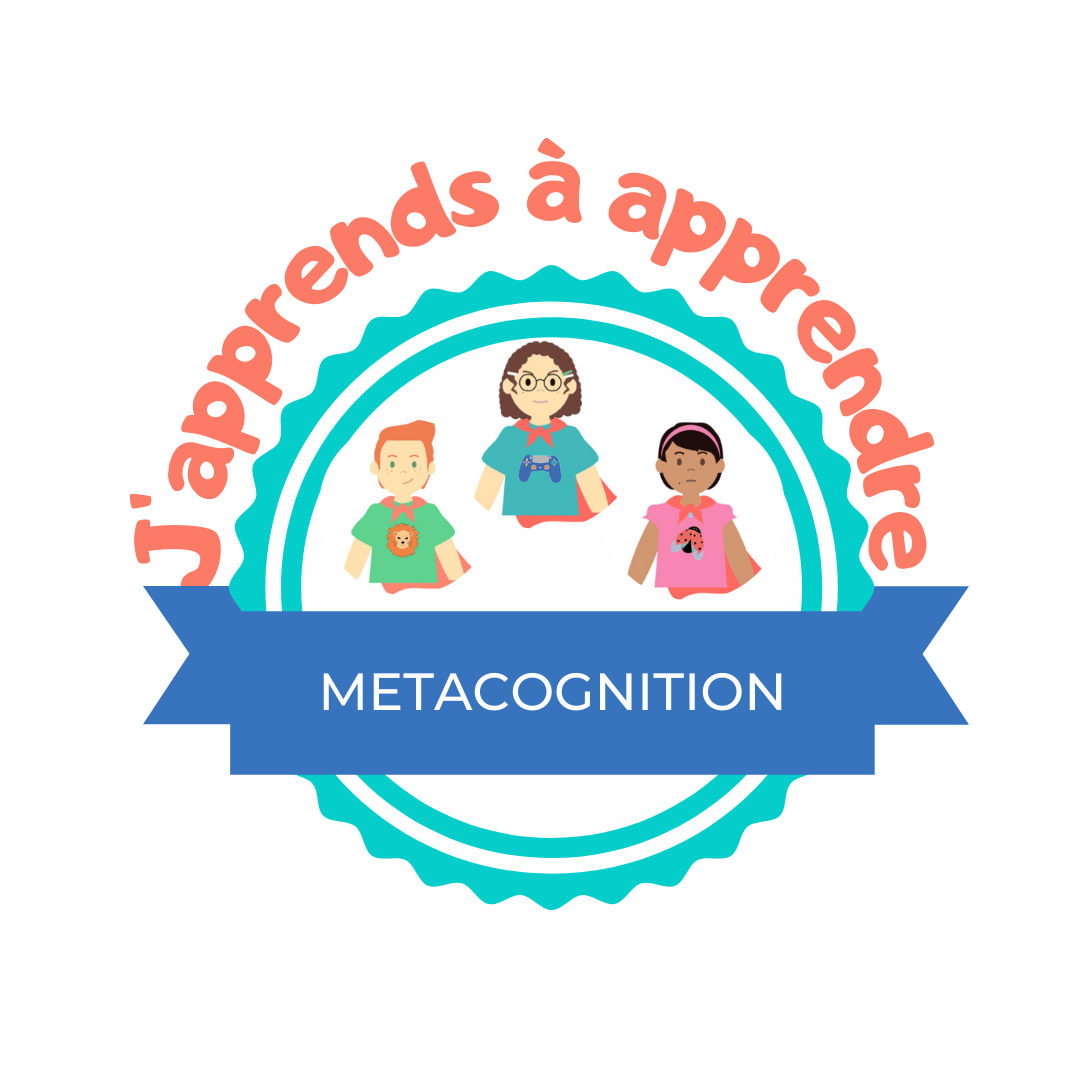diversity, inclusion and harassment program
Findings on diversity and inclusion
- Moving from integration to inclusion of students with disabilities(2005 law)
- Fighting bullying at school(pHARe program)
- Promoting equal opportunities and reducing social inequalities
All these challenges require in-depth work to open up to diversity.
Recommendations from health authorities
Numerous bodies, such as France Publique France and the WHO, recommend focusing actions on the development of Psycho-Social Competencies. Indeed, it has been found that such strategies are more effective than prevention campaigns focused on information and knowledge of risks or benefits: the culture of empathy, the development of self-confidence, assertiveness and informed decision-making are extremely powerful levers in terms of prevention.
What do the national education programs say?
Area 3 of the Common Base, entitled "Personal and civic development", focuses on :
mutual tolerance, empathy, equality, distance from stereotypes, refusal of discrimination, the principle of secularity.
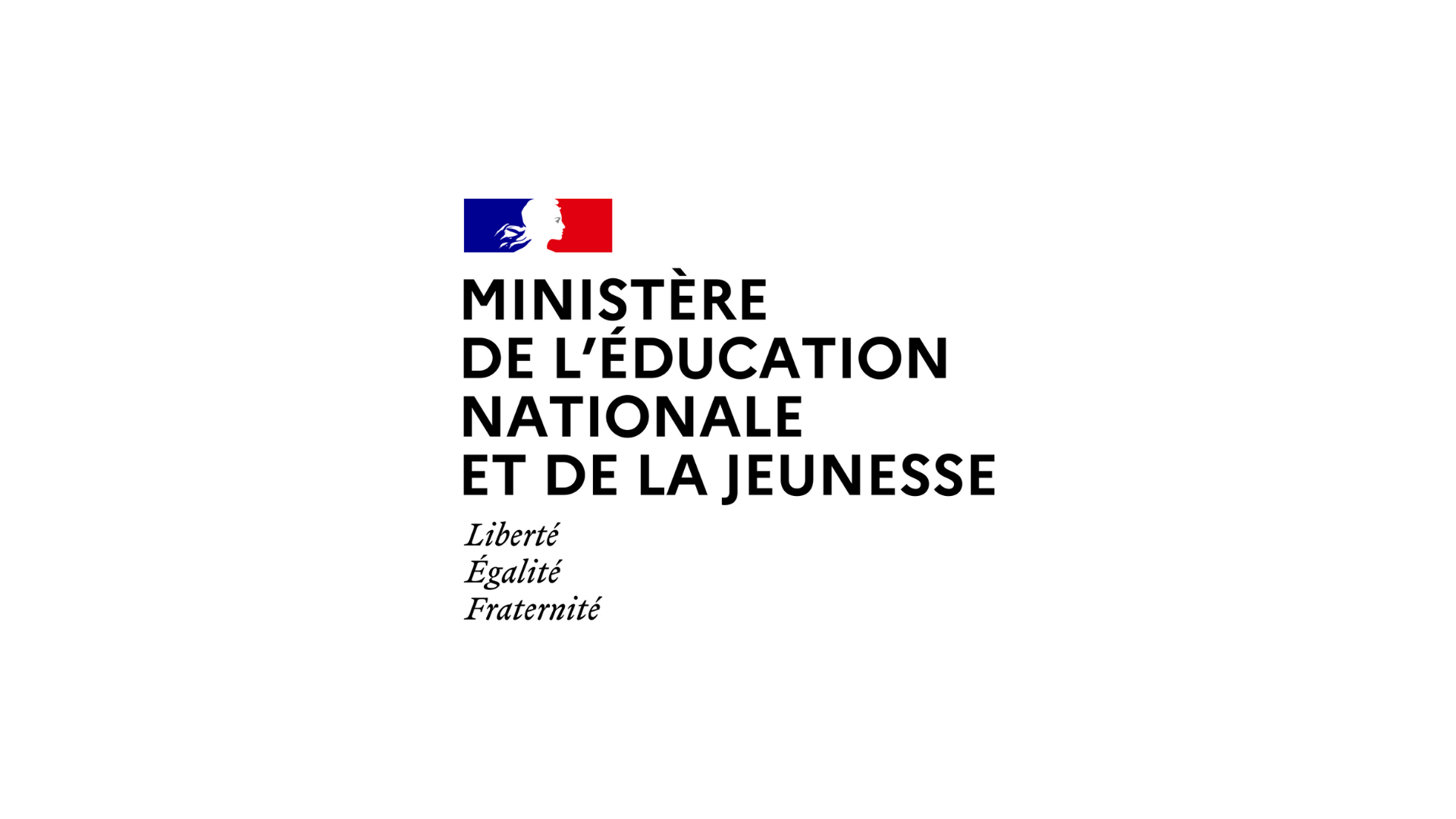
The government's anti-harassment announcements
The fight against violence and harassment in schools is no exception, and government recommendations are finally changing! 🎉
Minister Gabriel Attal has his sights set on building on methods that have proved successful in Nordic countries, and implementing assertive empathy courses at the start of the 2023 school year.
OUR program objectives
The objectives of the diversity and inclusion program
The "Diversity and Inclusion" program addresses the following objectives:
- Opening up to diversity
- Adopting an inclusive attitude to difference
- Identifying and combating stereotypes
- Taking action against harassment
The program in detail
Session 1 Pupils define the notion of diversity with a sorting game, and play with non-stereotypical images to familiarize themselves with difference, be it physical, religious, ethnic or other. Then they collectively create a beautiful ribambelle.
Session 2: Students define the notion of inclusion with a crossword puzzle, then learn a little more about the different types of disability and deconstruct certain prejudices. Finally, they experiment with blindness by making tactile dominoes.
Session 3: Students learn to identify stereotypes through games and an animated film.
Session 4: Students learn to identify a discriminatory or disrespectful situation with a sorting game and a maze, then understand the mechanisms of harassment and how to prevent or combat it, as a harasser, victim or witness. Finally, they experiment with different techniques for defusing a harassment situation through role-playing.
Session 5: The final session enables students to take stock of their learning and formalize a written trace with the key elements.
Our edutainment approach
Our approach combines independent games on tablet/computer and classroom activities.
Why use digital technology to work on CPS?
A variety of games enable students to reflect on themselves and discover best practices in concrete, everyday situations.
Ergonomics and easy-to-understand instructions encourage intuitive use by students: sorting games, drag & drop, MCQs, mazes, sophrology, etc.
Then a class activity is proposed. This could be, for example :
> a collective exchange or debate to develop opinions
> a role-playing game to put into practice what has been learned
> a small-group activity to consolidate what has been learned and learn to collaborate
> an artistic activity to develop creativity
> an activity to formalize what has been learned, such as application exercises or the creation of a written record.
A turnkey tool
In your teacher interface, you will have access to all the resources you need to implement the session:
- student tracking charts
- step-by-step teaching guides for easy-to-use sessions
- student materials to be projected or photocopied
- a proposed yearly progression and references to official programs
- instructions for use
To sum up:
The DIVERSITY & INCLUSION program will help your students to respect and even value difference, and to think about how to take action against discrimination and violence.

